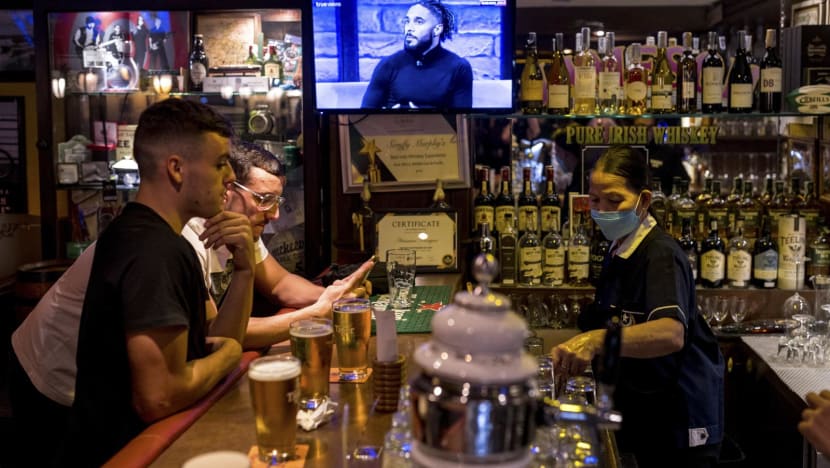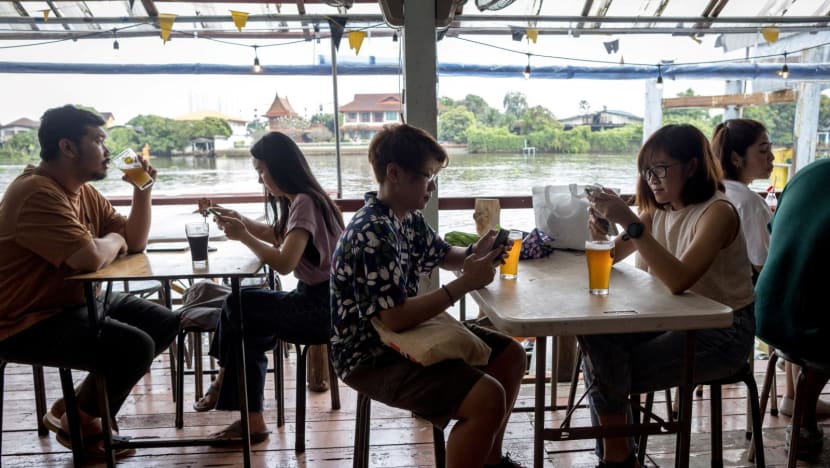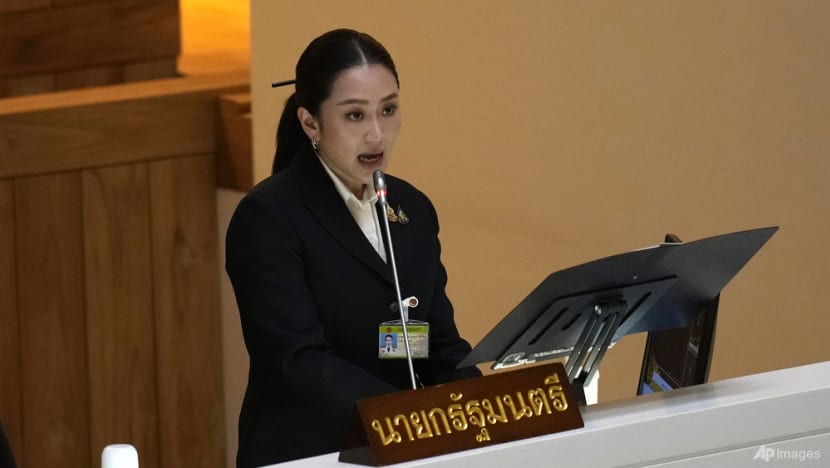Thailand mulls lifting 53-year-old ban on afternoon alcohol sale in bid to boost tourism
In Thailand, the sale of alcoholic beverages is banned between 2pm and 5pm and on important Buddhist religious days, following a decree by a coup regime in 1972 intended to target civil servants’ habit of extended lunch-time drinking.

Various sectors of the economy have raised numerous complaints against the legal restrictions on the sale of alcoholic beverages in the afternoon, which are regarded to have hindered economic growth. (File Photo: AFP/Jack Taylor)
BANGKOK: In a bid to boost tourism numbers, Thailand Prime Minister Paetongtarn Shinawatra has ordered a review of a rule which prohibits the sale of alcoholic beverages in the afternoon, a move that has been welcomed by restaurant operators as well as other business associations.
“This is our tourism year, so we need to review these regulations,” Paetongtarn was quoted as saying at a Cabinet meeting on Tuesday (Feb 11) by local news outlet Khaosod.
The campaign the prime minister was referring to - “Amazing Thailand Grand Tourism & Sports Year 2025” - aims to attract 40 million foreign visitors and generate 2.8 trillion baht (US$83.2 billion) in tourism revenue this year, according to local media.
Various sectors of the economy have raised numerous complaints against the legal restrictions on the sale of alcoholic beverages in the afternoon, which are regarded to have hindered economic growth, Paetongtarn said.
In Thailand, the sale of alcoholic beverages is banned between 2pm and 5pm and on important Buddhist religious days. The rule was imposed following a decree by a coup regime some 53 years ago in 1972. It was intended to target civil servants’ habit of extended lunch-time drinking.
The regulations were later consolidated into the 2008 Alcohol Control Act, Khaosod reported.
Paetongtarn has since instructed the Ministry of Health, the Ministry of Interior and the Ministry of Tourism and Sports to study the issue, according to Deputy Prime MInister Anutin Charnvirakul.
Anutin added that the Department of Provincial Administration of the Interior Ministry will oversee the overall framework, particularly with regards to the restriction laws.
Chairman of the Club of Restaurant Operators Sorathep Rojpojnarat is among those that welcomed Paetongtarn’s consideration of long-standing calls from business operators to lift the restrictions, Nation Thailand reported.
“The order has been in place for 53 years, but society has changed significantly,” Sorathep was quoted as saying in a report on Thursday.
He explained how lifting the ban could contribute to economic growth, considering how tourists tend to avoid restaurants between 2pm and 5pm because they are not allowed to purchase alcohol with their meals.
Sorathep also hoped that the alcohol ban could be lifted before April this year, in time for the upcoming popular Songkran celebrations.
Songkran is a Buddhist festival in the country and marks the start of the traditional Thai New Year. It is a major tourist draw.
Last year, the country welcomed 1.92 million foreign tourist arrivals during the extended Songkran celebrations between Apr 1 and Apr 21, a 37.5 per cent surge compared to 2023.
Khaosod on Thursday reported that relaxing rules on the hours of sales operation could possibly generate more than 50 billion baht in direct economic activity from both foreign tourists and local consumers in a year.
Meanwhile, President of the Pattaya Nightlife Business Association Lisa Hamilton told Khaosod that the alcohol sales ban at certain time periods has caused confusion for both operators and tourists.
“On every Buddhist religious day, store owners have to remind each other about the ban on alcohol sales, which significantly affects revenue so if these restrictions are lifted, stores can operate more smoothly,” Hamilton was quoted as saying.
“Many foreign tourists find the ban on alcohol sales on religious days confusing and inconvenient for their travel plans, some have even wondered why the sale of alcohol is banned on certain days when they are visiting Thailand to enjoy the nightlife and tourist attractions to the fullest.”

Paetongtarn stressed that her administration seeks to balance tourism growth with social responsibility.
“Though lifting restrictions can boost business revenue and tourism, we must ensure young people do not have easy access to alcohol, this is something we will not overlook,” she said, as quoted by Khaosod.
Health Minister Somsak Thepsutin on Thursday said that he has instructed officials to study the pros and cons of lifting the afternoon alcohol sale ban.
The Bangkok Post reported the minister as saying that the alcohol control committee under his ministry’s purview would discuss the proposal in due time, and would consider opinions across the board.
He noted that a recent proposal to allow the sale of alcohol on trains at certain times was rejected after a study found it could do more harm than good.
“Even if the economic benefits seem appealing, we might not proceed with such a proposed change (on the afternoon alcohol sale) should the majority of people not agree,” Somsak reportedly said.
Under the 2008 Alcohol Control Act, penalties for violating alcohol sales regulations include imprisonment for up to six months, a fine of 10,000 baht or both.
In addition to the holiday and timing restrictions, one must be at least 20 years old to purchase alcohol. Sales are also prohibited in certain areas under local administrative organisation supervision such as riverbanks, canal sides and beaches.
Those found violating these laws could face up to one year jail term, a 500,000 baht fine or both.
Paetongtarn is not the first Thai leader to consider easing the afternoon alcohol sales ban.
Her predecessor - Srettha Thavisin - had reportedly “considered proposals” to tweak the regulation, according to a statement on the Royal Thai Government website in July last year.














